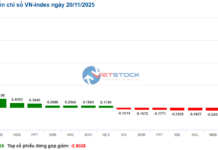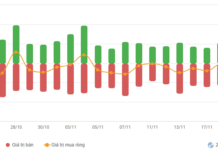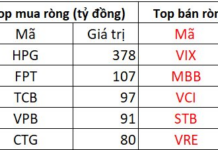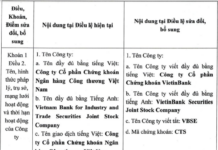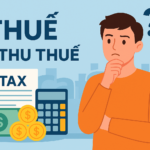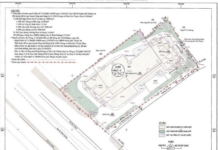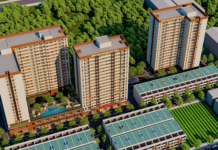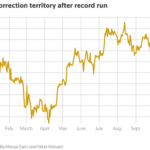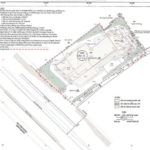“Many Avoid Paying Their Fair Share of Taxes, Despite Legal Obligations”
In practice, not everyone fulfills their tax obligations honestly and comprehensively. Some even blatantly manipulate the system or completely disregard filing their taxes.
Renting out properties without disclosing tax liabilities
Mr. Thanh, a resident of Xuan Hoa Ward in Ho Chi Minh City, owns two apartment units and rents them out for 12 million VND per month each. His annual income from these rentals amounts to nearly 290 million VND, almost triple the tax-exempt threshold. However, when asked about tax declarations, he bluntly stated, “If you don’t declare, you don’t have to pay taxes. It’s that simple!”
A similar case involves Ms. Thuy from Nhon Trach, Dong Nai. She owns a house in Ho Chi Minh City, which she rents out for 20 million VND per month. Despite earning over 200 million VND annually, she fails to declare her income.
“I’m old, and the only income I have is from renting out my house, which I use for my monthly expenses. So, I never thought about paying taxes,” she explained.
According to reports by journalists, many individuals believe that renting out property does not constitute “doing business,” and therefore, they are not required to pay taxes.
Mr. Thanh Hoang, a resident of An Lac Ward in Ho Chi Minh City, owns a row of rooms that he rents to factory workers, earning an average of over 12 million VND per month. He said, “Some months there are fewer tenants, and some months there are more. I don’t know how to declare it, so I just don’t bother.”
According to Clause 1, Article 9 of Circular No. 40/2021/TT-BTC, individuals renting out their properties have three options for declaring personal income tax: declaring for each payment period, declaring annually, or declaring multiple contracts if they fall under the same tax authority. Those with an annual income of up to 100 million VND are exempt from tax.
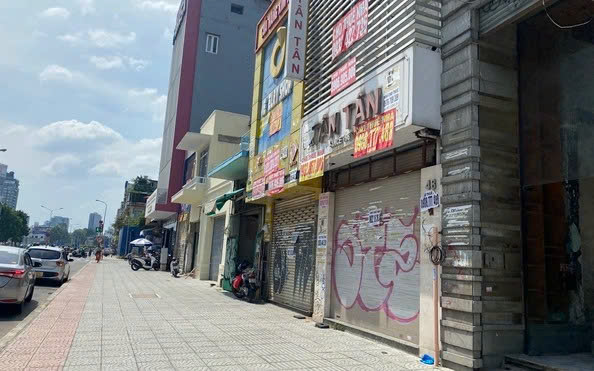
Renting out houses and spaces has become a significant source of income for many people.
|
However, for those whose income exceeds this threshold, there is an obligation to declare and pay taxes. The current tax rate is 10% of the total revenue, including 5% personal income tax and 5% value-added tax.
Nevertheless, many individuals deliberately underreport their income or choose to remain silent, hoping to escape the attention of the tax authorities.
Penalties and back taxes apply to those who rent out properties without declaration
Facing this reality, the Tax Department has sent an official dispatch to the People’s Committees of provinces and centrally-run cities, requesting their coordination and direction in managing tax obligations for households and individuals renting out houses and offices.
Mr. Nguyen Tien Dung, Deputy Director of Ho Chi Minh City Tax Department, stated that they have instructed the district-level tax offices to coordinate with ward-level People’s Committees, residential area management boards, and even local police to inspect the situation of house rentals in their respective areas. Information from tenants’ temporary residence declarations is also utilized to verify actual revenue. “When we discover tax evasion cases, we work with local authorities to determine the accurate revenue, impose fines, and collect back taxes. Serious violators will have their cases transferred to the police,” Mr. Dung asserted.
According to Decree No. 125/2020/ND-CP, those who under-declare and consequently underpay their taxes will be subject to a 20% penalty on the deficient amount. For non-declaration, the fine ranges from 2 million to 25 million VND, depending on the duration and severity of the violation. If the amount of tax evasion is substantial and the act bears criminal indications, the violator may face criminal liability.
A tax official shared that the tax collected from rental activities is not just a legal obligation but also contributes to ensuring social equity. “Salaried employees have their taxes deducted from their wages, while landlords earning hundreds of millions of dong fail to declare their income—this is clearly unfair,” the official remarked.
In reality, many landlords “forget” to declare their income, thinking that the tax authorities won’t notice or because they have never been audited. However, with the current tightening of management, the days of casually renting out properties without paying taxes may soon come to an end.
|
The tax authorities advise landlords to familiarize themselves with the regulations and proactively declare their income truthfully, timely, and accurately. Failing to do so may result in not only paying taxes but also incurring penalties and late payment fees, which could exceed the initial tax liability. |
Thy Tho – Son Nhung
– 08:32 17/08/2025
One-Minute Tax Talk: Are Electronic Invoices Mandatory for Private Clinics with Annual Revenue of 950 Billion?
“The Tax Authority has shed light on tax rates applicable to business households, offering much-needed clarity to entrepreneurs across the nation.”
The Reign of Land Investment Has Ended: Exploring Alternative Investment Avenues in the Current Climate
As of Q3 2024, apartment prices in Hanoi had surged, witnessing a remarkable 64% increase compared to Q2 2019. This surge outpaces Ho Chi Minh City’s growth, doubling its rate of increase. The average primary selling price is now approaching 60 million VND per square meter. Economic experts attribute this shift to the apartment segment, dethroning land as the once-undisputed investment king.

